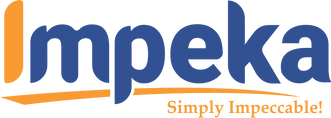In the ever-evolving world of digital marketing, search engine optimization (SEO) remains a critical factor in driving organic traffic to your website. While off-page SEO strategies focus on external factors like backlinks, on-page SEO plays a vital role in optimizing individual web pages to rank higher in search engine results pages (SERPs). This article will provide a detailed overview of on-page SEO and offer practical tips on how to implement it effectively.
Understanding On-Page SEO
On-page SEO refers to the optimization techniques employed directly on web pages to improve their visibility and relevance to search engines. It involves various elements such as content, meta tags, URLs, headings, internal linking, and more. By optimizing these on-page factors, you can enhance your website’s chances of ranking higher and attracting targeted organic traffic.

Implementing On-Page SEO
Keyword Research
Perform thorough keyword research to identify the most relevant and high-ranking keywords in your niche. Tools like Google Keyword Planner, SEMrush, and Moz Keyword Explorer can help you find the right keywords to target.
High-Quality and Engaging Content
Create unique, informative, and well-structured content that aligns with the search intent of your target audience. Incorporate your targeted keywords naturally within the content while maintaining readability and providing value. Utilize headings (H1, H2, etc.), bullet points, and subheadings to break down your content into digestible sections.
Optimize Meta Tags
Craft compelling meta tags for each page, including title tags and meta descriptions. Ensure your title tags are concise, descriptive, and contain relevant keywords. Meta descriptions should be enticing and provide a concise summary of the page’s content to encourage users to click through from the search results.
URL Structure
Create user-friendly URLs that are descriptive and include relevant keywords. Use hyphens (-) to separate words for better readability. Avoid using numbers or complex characters that may confuse both users and search engines.
Image Optimization
Optimize your images by reducing their file size without compromising quality to enhance page load speed. Use descriptive file names and include relevant alt tags, which assist search engines in understanding the content of the images. Additionally, consider providing a caption or surrounding text that reinforces the image’s relevance to your content.
Internal Linking
Create a logical internal linking structure within your website to improve user navigation and help search engines discover and index your content more efficiently. Link related pages together using descriptive anchor texts to provide context and signal the importance of the linked pages.
Page Load Speed
Ensure your web pages load quickly, as slow-loading pages can negatively impact user experience and search engine rankings. Compress images, minimize HTML, CSS, and JavaScript files, leverage browser caching, and choose a reliable hosting provider to improve page load speed.
Mobile Optimization
Given the increasing mobile usage, optimize your website for mobile devices. Employ responsive design principles to ensure your pages adapt seamlessly to different screen sizes. Google’s Mobile-Friendly Test can help you assess your site’s mobile optimization and suggest improvements.
User Experience (UX)
Prioritize a positive user experience by making your website easy to navigate, visually appealing, and accessible. Optimize your site’s structure, implement intuitive menus, and ensure clear calls-to-action (CTAs) to guide users through your content.
Schema Markup
Implement schema markup, also known as structured data, to provide search engines with additional context about your content. This markup helps search engines display rich snippets, such as star ratings, reviews, and other relevant information, in the SERPs, attracting more attention from users.
On-page SEO is an essential component of any successful digital marketing strategy. By understanding and implementing the various on-page optimization techniques, you can improve your website’s visibility, attract targeted organic traffic, and ultimately achieve higher search engine rankings. Remember to regularly monitor your performance, adapt to algorithm updates, and continue refining your on-page SEO practices to stay ahead in the competitive online landscape.

